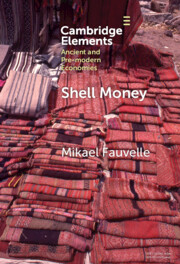1 results

Shell Money
- A Comparative Study
-
- Published online:
- 15 February 2024
- Print publication:
- 21 March 2024
-
- Element
-
- You have access
- Open access
- HTML
- Export citation

